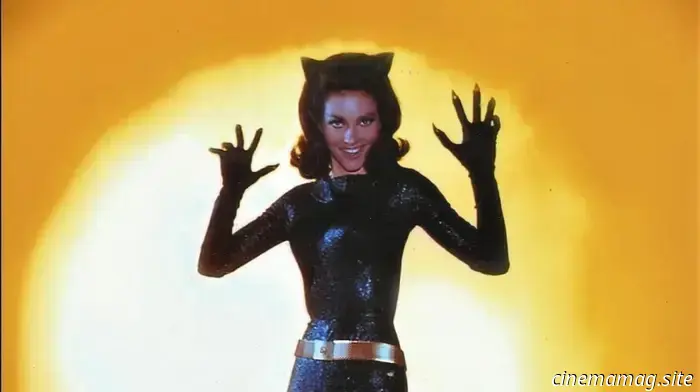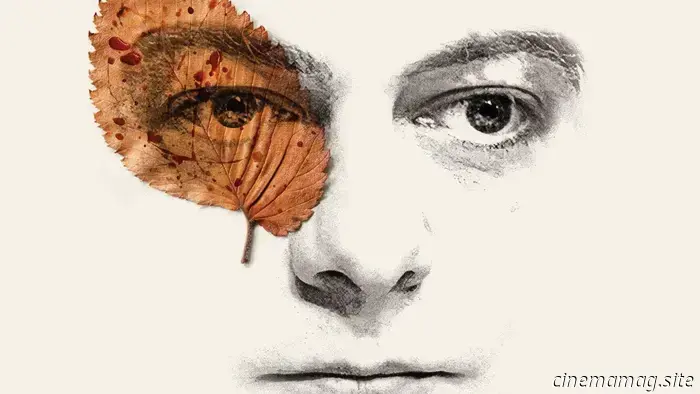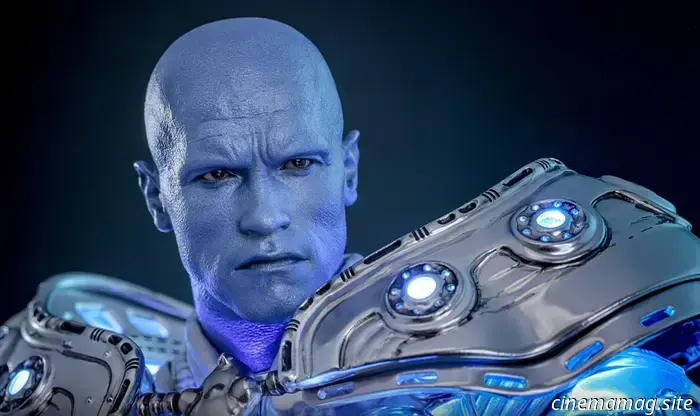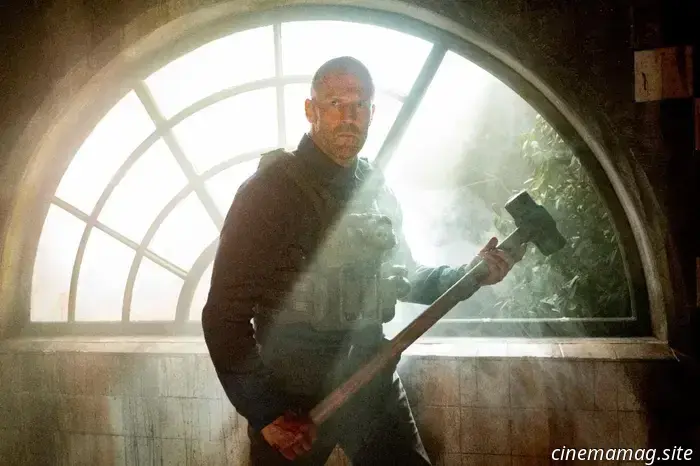The Enduring Impact of Avatar: The Last Airbender Two Decades Later
Ricky Church reflects on the enduring legacy of Avatar: The Last Airbender…
In today's era of television animation, it is uncommon to find a series that appeals to both children and adults through its narrative, characters, and philosophical themes. This is likely why Avatar: The Last Airbender continues to hold significance two decades after its debut. The series celebrated its 20th anniversary last week, and despite being two decades old and having spawned sequels, comics, novels, and a live-action adaptation, the original remains one of the most cherished and critically acclaimed productions in animation history.
Crafted by Michael Dante DiMartino and Bryan Konietzko, Avatar: The Last Airbender is set in a world where people can manipulate the elements of water, earth, fire, and air. Only one individual, known as the Avatar, is fated to master all four elements, ensuring balance among the four nations. However, when the Fire Nation launched a campaign to dominate the world, Aang, the newest Avatar from the Air tribe, was frozen for a century. Now awakened, Aang and his friends must confront the Fire Nation and restore harmony to the world.
While Avatar could have easily been a straightforward children's adventure about good fighting against an evil empire, it quickly revealed its depth in various ways. The narrative explores Aang's struggles as a 12-year-old Avatar, Sokka and Katara dealing with the trauma of their mother's murder and their father’s absence, as well as Zuko's turbulent family dynamics and inner conflict. The show is rich with character development and emotional moments, balanced by humorous elements, such as the 'Cave of Two Lovers' featuring a quirky band of nomads and the meta-commentary in ‘The Emerald Island Players’. The juxtaposition of slapstick humor with serious themes was skillfully executed and felt natural throughout the series.
A prime example of this balance is found in ‘The Tales of Ba Sing Se’, an anthology of stories reminiscent of Pulp Fiction, where characters take a break from their urgent quest to enjoy moments in the Earth Kingdom's capital. The stories include humorous scenarios, like Sokka’s haiku competition, Uncle Iroh's misadventures in the city, and Aang trying to wrangle zoo animals. Yet, amidst the comedy, the episode delivers poignant emotional moments including Katara supporting Toph regarding her appearance, Momo searching for Appa, and Iroh's heartfelt tribute to his deceased son, a moment made even more powerful by being dedicated to Iroh's voice actor, Mako Iwamatsu, who had passed away shortly before it aired.
Uncle Iroh serves as a source of much of Avatar's philosophical insights, acting as a mentor akin to Yoda or Obi-Wan, offering wisdom to Zuko and their 'enemies' Aang, Katara, and Sokka. His understanding of the necessity for balance among the four elements, combined with his role in Zuko’s transformation, highlights the series' lessons and character growth. The episode ‘Bitter Work’ stands out as one of the strongest, prioritizing character development over action, functioning almost as a therapy session for both Aang and Zuko, where Iroh helps Zuko confront his resentment and insecurities to harness his full potential.
Aang is also insightful for his age, having the wisdom of past Avatars and coming from the Air Nomads, who cherish peace and enlightenment over violence. However, his youth and initial hesitance to embrace his Avatar role means he has significant growth to undergo, both in maturity and in mastering the elements. Aang’s journey is especially notable for his refusal to resort to killing even in self-defense, despite pressure from his friends and past Avatars to do so against the Fire Nation, underscoring the importance of his struggle to find alternatives to violence in his battle with Fire Lord Ozai.
Notably, Zuko's development is often what resonates most with viewers. While Aang’s growth as the central hero is prominent, Zuko transitions from a relentless antagonist pursuing Aang and his companions to becoming one of their key allies by the series' conclusion, ultimately teaching Aang firebending to prepare for a confrontation with Zuko’s father.
Zuko exhibits multi-dimensionality beyond being a mere villain fixated on capturing the Avatar for recognition and his father's approval; he is depicted as loyal, cunning, and often logical, even as he grapples with his ambition versus doing the right thing. His evolution from enemy to fellow protagonist is a gradual process that places viewers in the positions of Iroh, Aang, and Katara, who strive to support Zuko, feeling disappointed whenever he falters. Zuko's arc serves not only as a superb character progression but also as a thoughtful critique of the ‘Enemies to Friends’ trope, illustrating how it can be executed effectively.
Beyond storytelling, Avatar is a technical achievement
Other articles
 Ripster introduces the collectible figure line of Mondo's Street Sharks.
Mondo is focusing on another iconic animated series for its latest collection, introducing the Ripster soft vinyl figure from the 1990s animated show Street Sharks. This figure can be pre-ordered now for $150. You can find the official details and promotional images here… SEE ALSO: […]
Ripster introduces the collectible figure line of Mondo's Street Sharks.
Mondo is focusing on another iconic animated series for its latest collection, introducing the Ripster soft vinyl figure from the 1990s animated show Street Sharks. This figure can be pre-ordered now for $150. You can find the official details and promotional images here… SEE ALSO: […]
 Ranking All 10 Batman Films
Batman films ranked from least to most impressive. Everyone has their own ranking, and here’s ours. Join us!
Ranking All 10 Batman Films
Batman films ranked from least to most impressive. Everyone has their own ranking, and here’s ours. Join us!
 Posterized March 2025: Grand Tour, Eephus, Misericordia, and Additional Highlights
The Oscars are over, and both the nominees and winners are likely to attract attention in cinemas and at home––viewership increased slightly compared to last year, suggesting that many people were not familiar with the films until now. This leaves limited time for attracting audiences to new releases, and it appears that studios are taking this into account.
Posterized March 2025: Grand Tour, Eephus, Misericordia, and Additional Highlights
The Oscars are over, and both the nominees and winners are likely to attract attention in cinemas and at home––viewership increased slightly compared to last year, suggesting that many people were not familiar with the films until now. This leaves limited time for attracting audiences to new releases, and it appears that studios are taking this into account.
 Trailer for the thriller Darkest Miriam featuring Britt Lower from Severance.
Game Theory Films has unveiled a trailer for Darkest Miriam, an adaptation of Martha Baillie’s novel The Incident Report by writer-director Naomi Jaye. The thriller features Britt Lower from Severance as Miriam, a librarian whose previously sheltered life is disrupted when she starts receiving a string of threatening letters while embarking on a new relationship. Joining […]
Trailer for the thriller Darkest Miriam featuring Britt Lower from Severance.
Game Theory Films has unveiled a trailer for Darkest Miriam, an adaptation of Martha Baillie’s novel The Incident Report by writer-director Naomi Jaye. The thriller features Britt Lower from Severance as Miriam, a librarian whose previously sheltered life is disrupted when she starts receiving a string of threatening letters while embarking on a new relationship. Joining […]
 Arnold Schwarzenegger's Mr. Freeze is now part of Hot Toys' sixth scale figure collection for Batman & Robin.
The Iceman Cometh! Sideshow and Hot Toys have introduced the sixth scale Mr. Freeze collectible figure, drawing inspiration from Arnold Schwarzenegger's portrayal of the supervillain Dr. Victor Fries in Joel Schumacher’s 1997 DC sequel Batman & Robin. Take a look at both the collector's edition and the deluxe version below… As a ruthless antagonist, [...]
Arnold Schwarzenegger's Mr. Freeze is now part of Hot Toys' sixth scale figure collection for Batman & Robin.
The Iceman Cometh! Sideshow and Hot Toys have introduced the sixth scale Mr. Freeze collectible figure, drawing inspiration from Arnold Schwarzenegger's portrayal of the supervillain Dr. Victor Fries in Joel Schumacher’s 1997 DC sequel Batman & Robin. Take a look at both the collector's edition and the deluxe version below… As a ruthless antagonist, [...]
 New featurette released for the Jason Statham action-thriller A Working Man.
Amazon MGM Studios has released a featurette for the action thriller A Working Man, where director Ayer talks about reuniting with Jason Statham, the star of The Beekeeper. The featurette also features interviews with co-stars David Harbour, Michael Peña, and Arianna Rivas. You can watch it below… Levon Cade has stepped away from a distinguished military career [...]
New featurette released for the Jason Statham action-thriller A Working Man.
Amazon MGM Studios has released a featurette for the action thriller A Working Man, where director Ayer talks about reuniting with Jason Statham, the star of The Beekeeper. The featurette also features interviews with co-stars David Harbour, Michael Peña, and Arianna Rivas. You can watch it below… Levon Cade has stepped away from a distinguished military career [...]
The Enduring Impact of Avatar: The Last Airbender Two Decades Later
Ricky Church discusses the impact of Avatar: The Last Airbender… In today’s world of TV animation, it is uncommon to find a program that resonates with both kids and adults through its narrative, characters, and themes. This may explain why Avatar: The Last Airbender continues to be relevant two decades after its debut. The series [...]
